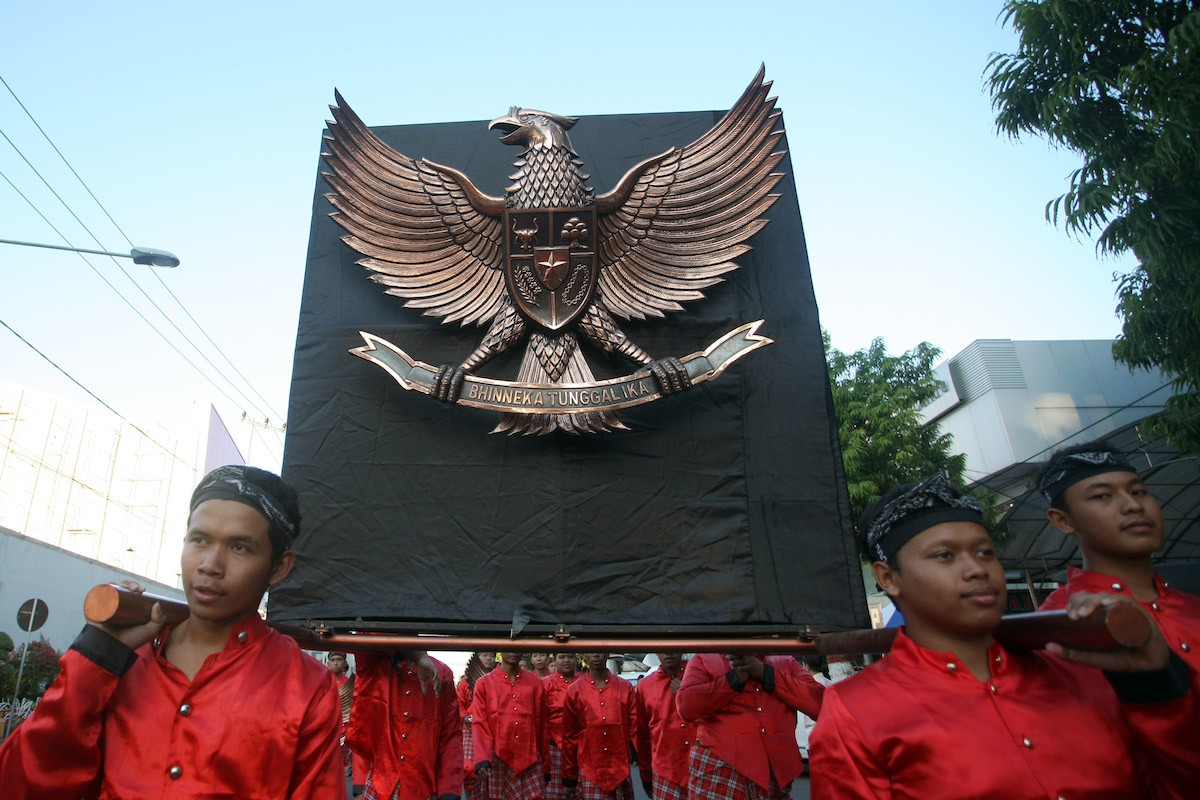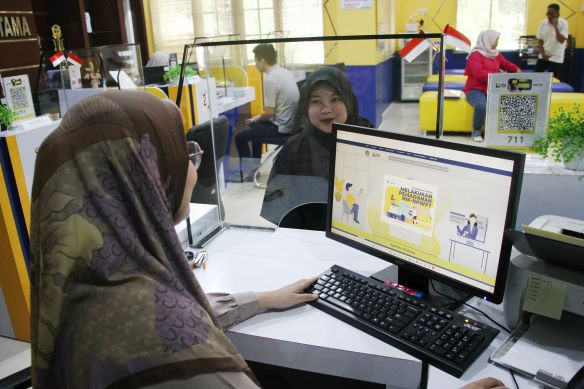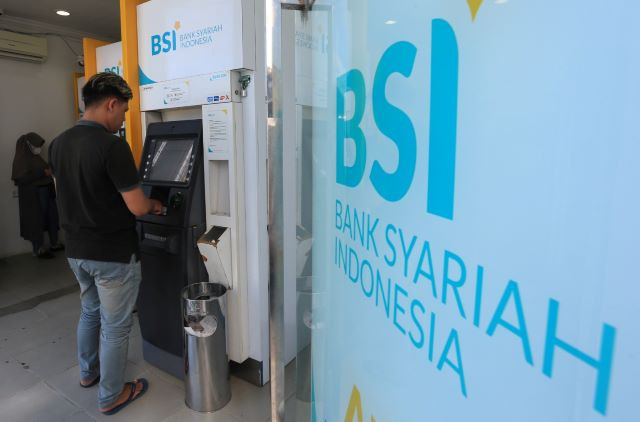Role of Pancasila in Indonesian modern democracy
Due to the dominance of Pancasila, one could hardly distinguish the basis of the parties’ commitments on political issues.
Change Size
 People in Blitar, East Java, carry a symbol of state ideology Pancasila during a parade on May 31 in commemoration of the birth of Pancasila, which falls every June 1. (Antara/Irfan Anshori)
People in Blitar, East Java, carry a symbol of state ideology Pancasila during a parade on May 31 in commemoration of the birth of Pancasila, which falls every June 1. (Antara/Irfan Anshori)
J
une 1 marked the commemoration of Pancasila Day. The “five principles” served as a political tool to legitimize the past authoritarian regime, which sought to “revive” the ideology.
General Soeharto cemented Pancasila role as Indonesia’s national ideology, to the extent that it had served as a grundnorm, a fundamental source of norms and values that encompasses various aspects of citizen’s life. Before the eyes of the people, the regime appeared to be defending and bringing back the aspirations of the founding fathers. What really happened was that Pancasila was used to dispose of the Indonesian Communist Party (PKI), by capturing and killing citizens from different backgrounds – doctors, teachers, scholars, intellectuals -– allegedly affiliated to the party.
Moreover, the regime set Pancasila as the only ideology to be tolerated within its restrained political landscape. Thenceforth, all political parties were obliged to have Pancasila as a compulsory philosophical basis and ideological underpinnings on their aspirations.
The problem is that 20 years after reformasi Pancasila remains a compulsory basis in the Indonesian democratic system.
A properly functioning democracy would consist of political parties which serve as a medium for politicians and the people to bring their aspirations. Without a genuine philosophy to guide its path, a party may risk losing its own purpose and may be misused as a “personalistic” party –with the intention of solely serving as vehicle for politicians to get into office.
Due to the dominance of Pancasila, one could hardly distinguish the basis of the parties’ commitments on political issues; there’s no such thing as labor and social justice party or pro market and free enterprise party, and whether those are based on green philosophy or liberal progressivism. Even major Islamic parties have also reiterated their loyalty to Pancasila.
Existing parties could not be distinguished in that way, as Pancasila impartially serves as the common overarching ideology. It is no longer the aspirations of the party that matters, since all of them points out towards Pancasila, rather it is more of the personalities and traits of the politicians that they represent; the humbleness of President Joko “Jokowi” Widodo, the strong character of candidate rival Prabowo Subianto, and the list goes on.
Political parties should embrace the ideology that directs the path of the organization, which is reflected within the citizens’ aspirations. The Pancasila ideology is said to guide political parties towards values like ‘just and civilized humanity’ or ‘social justice for the people’, although in practice there should be clear measures towards achieving that common goal. In many instances, especially during the New Order, the promises to bring the aforementioned values have been obstructed to the point where it became lip service.
The ever-evolving society of Indonesia will eventually need to adapt to the principles of Pancasila as the guidance for the state. For instance, the growing minorities of agnostics who sit uncomfortably with the first principle. This problem persisted for long, as followers of non-theistic Buddhism or the polytheistic Hinduism have looked for references in their religious scriptures to be able to justify their views as being not in contradiction with the “belief in one God” as explained in the first principle. This example alone pictures a failure of Pancasila in uniting the people.
Moreover, the development of certain ideologies, that of communist-Marxist in particular, have been largely restricted in Indonesia due to the unfavorable narrative constructed by the New Order. There is no room for communists in Indonesia, even scholars in present time cannot openly discuss these ideologies with such easiness. The large intolerance towards ideologies and philosophies other than Pancasila may restrict the current political parties in addressing the real challenges that face modern Indonesian society.
For the Indonesian democracy to fully develop, it is important for political parties to show some leadership to fully represent the various layers and the ever-evolving society, by developing philosophical and ideologically driven visions for the people. It is time to leave behind the unfavorable view towards certain varieties of ideology, and actually demonstrate the capacity to address modern issues, though it might give alternate views of Pancasila, so as to adapt to the modern society of Indonesia.
Political parties should take a stand, start giving a real meaning to their struggle for embracing their own philosophy, rather than serving as a political vehicle for politicians to get into office. It is time for change, for us to materialize the will of the people by acknowledging Pancasila as one of the good sources -– out of many – and not as the ultimate truth to address modern challenges in Indonesian society.
Twenty years after reform, many among Indonesia’s young generation, at least, are prepared to take this step forward in maturing our democracy.
***
The writer is an undergraduate student majoring in international relations of Gadjah Mada. University (UGM), Yogyakarta (https://www.instagram.com/stevenjonathant/.)









